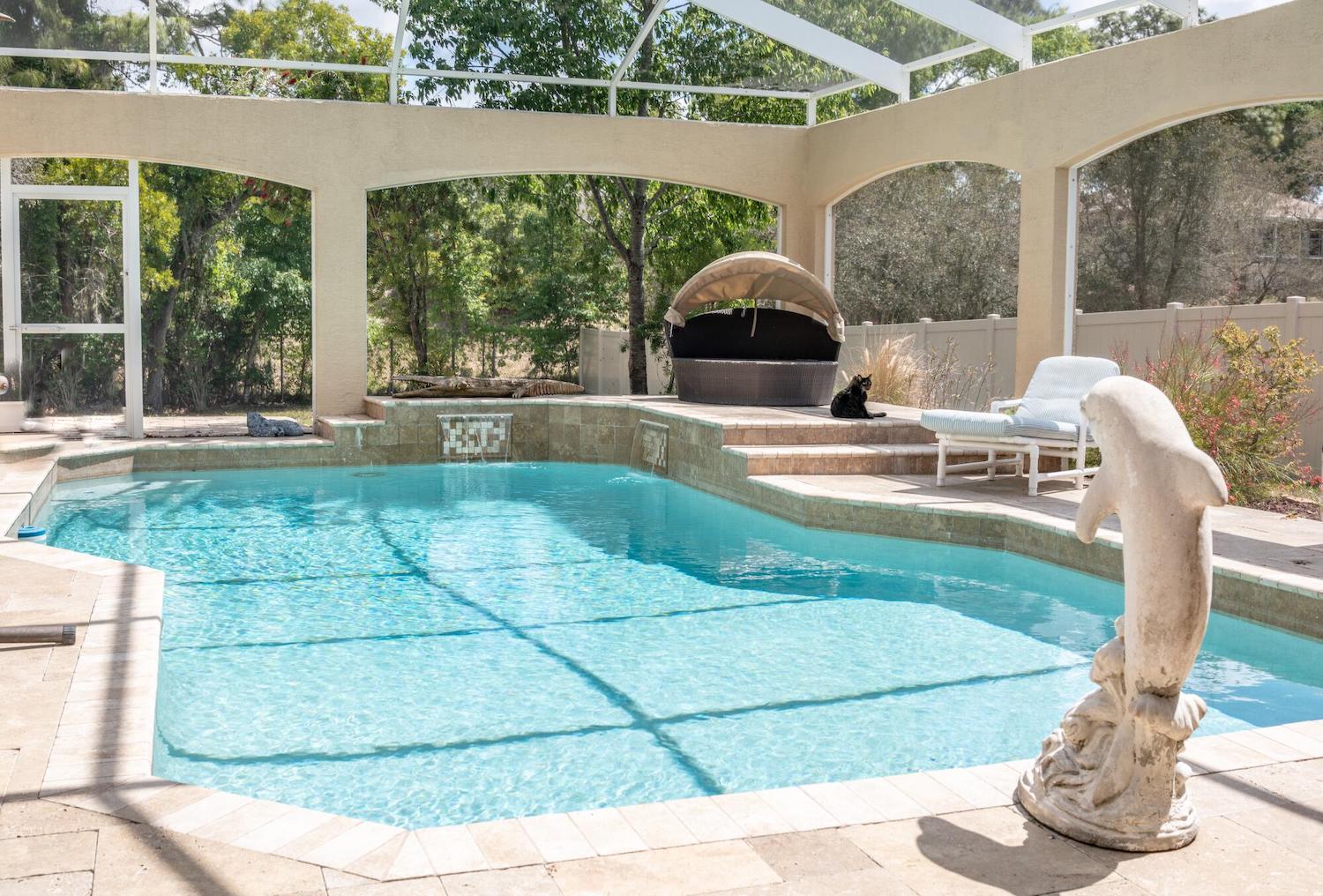A swimming pool can increase the value of your home by up to 7%. That doesn't mean that they're all created equal.
At least 1.4 million homes have a saltwater pool. It's an increasingly common alternative to traditional chlorine options.
What makes this new type of pool so different? Is it the right one for your home?
Read on to learn the pros and cons of saltwater vs. chlorine pools.
Saltwater Pools
A saltwater pool uses chlorine to sanitize the water but has much less of it. A chlorine generator creates it from the natural chloride contained in pool salt.
Pros
Having fewer harsh chemicals is a plus when comparing saltwater vs. chlorine pools. It makes the water gentler on your body and nose. You also won't need as much chemical storage space.
A saltwater pool is also easy to maintain as the generator works in the background. You'll only need to perform tasks such as adding a few balancing chemicals from time to time.
Cons
Saltwater doesn't always agree with metal. It may be corrosive to outdoor furniture, grills, or walkways.
It's also important to create a well-thought-out design. Even a compact backyard pool without much space can be a beautiful saltwater oasis when all the elements around it are properly placed.
Chlorine Pools
Chlorine pools are the oldest, most common types of pools. The chemical was discovered in 1774 by Swedish pharmacist Carl Wilhelm Scheele. It now has a variety of uses beyond swimming.
Chlorine is added to pools through liquid, tablets, or granules. They have to be tested weekly or biweekly to check their pH balance and chemical levels.
Pros
A chlorine pool isn't corrosive if it's properly maintained. You can put anything that you want within or around it.
This also makes chlorine pools more durable and long-lasting. They can last for generations.
Cons
A saltwater pool can feel like a spa. A chlorine pool may cause mild skin irritation or create a somewhat unpleasant odor.
Buying and checking chemical levels in a chlorine pool takes up time. You also have to find a place to store them.
There are ways to make this easier. Ask family and friends to help maintain the pool they also enjoy. Keep a calendar with a pool maintenance schedule. The more often you do it, the more routine it will become.
If you're unsure about which option to choose, start looking for a contractor. They'll work with you to pick the best one for your needs. They'll also create a luxurious design that adds to your home's beauty.
Designing Saltwater vs. Chlorine Pools
Comparing the pros and cons of saltwater vs. chlorine pools helps you decide between the two types.
Saltwater is less irritating and easier to maintain but may be corrosive. Chlorine is non-corrosive but requires more upkeep and is potentially irritating.
Channelmark Pools can help you with either option. We use a design strategy that's been proven successful through decades of successful projects. Contact us today to start designing the pool of your dreams.

